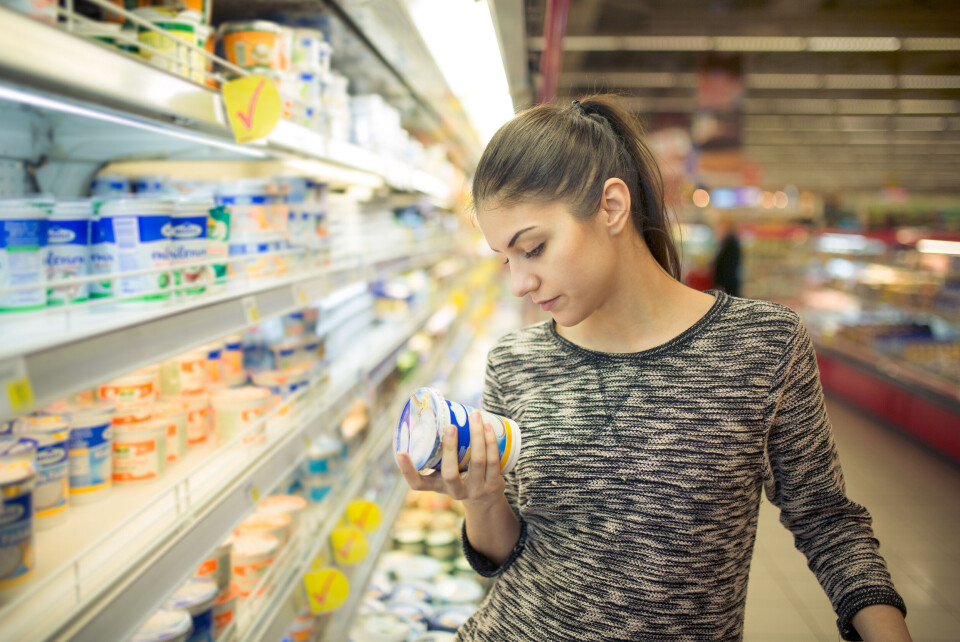-
Communes across France start fight against tiger mosquitoes with resident help
It comes as the mosquitoes continue to proliferate and spread disease
-
High demand for relaunch of Ryanair’s London - France route
Many UK residents own second homes in region
-
Visa delivery policy review ordered by French PM
'France welcomed more than half a million additional immigrants in 2024 - an unprecedented level', said François Bayrou
Major French supermarkets agree to keep essential food prices down
The measure will see everyday items priced as ‘low as possible’ in the next three months, identified by a special ‘trimestre anti-inflation’ logo sticker

France’s government says it has reached a deal with a host of supermarkets to fight food inflation.
It has agreed that retail giants such as Carrefour, Auchan and Intermarché will keep prices as ‘low as possible’ on a selection of everyday food products (the products are likely to vary from one supermarket to another).
The deal was branded as an ‘anti-inflation quarter’ (‘trimestre anti-inflation’) as supermarkets have made the commitment for the next three months until June.
In practice it will mean:
- A selection of products will be sold at low prices.
- The products included will feature a red, white, and blue ‘trimestre anti-inflation’ logo sticker.
- Mainly own-brand or supermarket-brand products will be included, as supermarkets have “more scope” to change those prices, said Carrefour CEO Alexandre Bompard.
🔴 Document @BFMTV : le logo « trimestre anti-inflation » qui fera son apparition dans les prochains jours dans les rayons des supermarchés pendant 100 jours. pic.twitter.com/A0fvVUksfq
— Léopold Audebert (@LeopoldAudebert) March 6, 2023
Supermarkets are paying for the measure, which they say will cost them “several hundred million euros”.
France’s Economy Minister, Bruno Le Maire, denied that the government was seeking to control private companies.
“We are a nation that believes in free trade; it is not up to us to set prices,” he said. “Each retailer will make the effort they want, on a certain number of products that they will define.”
‘Trade negotiations to re-open’
Brands and ministers had feared a ‘Red March’, in which they said prices could skyrocket until July, after the end of annual negotiations between supermarkets and suppliers.
Read more: French supermarket food prices to rise by 10%, warns industry chief
Some suppliers are said to have demanded price increases of as much as 20-30% in some cases, citing rising costs of fuel, energy, and packaging. This is despite wholesale prices for these items having dropped in recent weeks, Mr Le Maire said.
He added: “At the end of this ‘anti-inflation quarter’, we will re-open trade negotiations with the major manufacturers so that the fall in wholesale prices, which we are observing on the markets but which has not yet been passed on to everyday consumer products, can be reflected.”
‘Basket of goods’ and food cheque?
The government has long been discussing a way to improve shoppers’ purchasing power in supermarkets.
These have included the possibility of requiring all brands to provide a ‘basket’ of 50 everyday and essential items at set, low prices. However, this idea has now been shelved.
Read more: What is ‘basket of low-cost basic goods’ plan for French supermarkets?
Read more: More details revealed on plan for 50 low-cost shopping items in France
Ministers had also discussed the idea of a ‘food cheque (chèque alimentaire)’, to help the lowest-income households with food costs. However, this idea was also shelved in recent months, in favour of a general inflation payment.
Read more: How have people in France spent their inflation bonus cheques?
But Mr Le Maire said that the food cheque idea had not been dismissed completely. He said discussions for such a cheque were still underway, and that such a scheme could “be based on a geographical area, probably by department, so as to be as close as possible to consumers and producers”.
He said: “An experiment will be launched in the coming months,” and said that there was a “strong expectation” for a food cheque of sorts from both producers and consumers.
Existing supermarket measures
It comes after several major brands have already announced measures to help shoppers save money on grocery items, as prices continue to rise along with inflation. Food inflation reached 14.5% year-on-year in February, show the latest figures from statistics bureau Insee.
Carrefour, E.Leclerc, Intermarché, and Monoprix have each announced plans to offer a selection of everyday items – including food and hygiene products – to shoppers at low prices, to combat rising inflation.
These items will include healthy products such as yoghurts, fruit, and vegetables; but are not likely to feature many premium or luxury items or branded goods, such as Coca-Cola or Nutella.
Read more: Third French supermarket to launch basket of cheaper everyday goods
In response to the announcement by Mr Le Maire, head of E.Leclerc, Michel-Edouard Leclerc, joked wryly: “I didn’t need a public meeting [with the government] to make prices cheaper.”
He did not attend the public meeting, but did say that he would be speaking with the minister later in the day and would implement the proposal in his stores.
Related articles
Why food prices are at risk of rising again in France from March
Inflation in France: which foods have risen most, will rises continue?
























